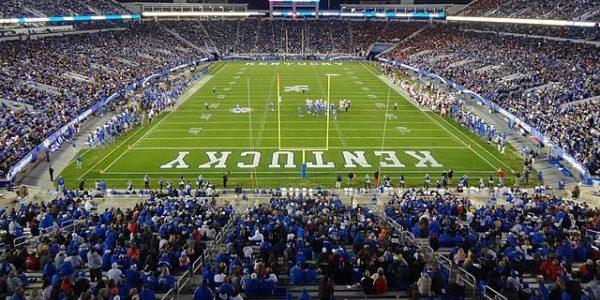(John Tamny, RealClear Wire) “In reality all economic activity outside the stationary state is speculation.” – Ludwig von Mises, Human Action
A constant refrain over the last several years as college football has transformed itself into a sub-NFL league is that the transformation was “about the money,” or more specifically, “a business decision.” Which was and is a statement of the obvious. Figure that all actions taken within the commercial realm are “business decisions.”
So while what’s happening is and was a “business decision” born of a desire among teams to attract exponentially more in the way of television money, not discussed enough has been whether or not the decision was a good one. Seemingly lost in all the trite observations “about the money” and “greed” is the simple truth that businesses make decisions all the time about money that turn out to be really bad ones. In which case it’s no sure thing that the path college football powers-that-be are taking the sport down will prove a good one for college football.
This is most evident in a dynamic economy like that of the U.S.’s where so much money can be earned by winning the fandom of the richest fans on earth. Did college football make the right “business decision”? The bet here is no.
About the above speculation, George Will makes the more-than-compelling point that the decisions disdained by college-football traditionalists (including yours truly) were inevitable in a sense, that it was no longer serious to graft “a multibillion-dollar entertainment industry onto institutions of higher learning.” Will is difficult to argue with here, but then it was the “tradition” that gave college football life, and that made it a multibillion dollar industry in the first place.
Put another way, there’s a reason that southerners (the most rabid college football fans of all) prefer the college game to the professional version: It’s the tradition. It’s the wacky rankings system that teams navigated in the past, the edge-of-one’s-seat regular season whereby one loss can end the pursuit of a national championship, it’s the furious recruiting battles between charismatic coaches, and yes, it’s the season-ending bowl games on January 1st (of course) that settle precisely nothing, only to set the stage for decades of debate about “Who was #1?”
No doubt people in New York, New Jersey and Massachusetts love the professional game, its playoffs and the season-ending Super Bowl. They can have it. The Super Bowl similarly settles nothing as Patriots and Giants fans know well (see 2008, 2012), but worse, a season defined by playoffs over bowl games devalues the very regular season that has long made college football so special.
It all raises a counterfactual that Will might appreciate given a childhood spent in Champaign, Illinois, home of Big 10 member Illinois. What if the Big-10 and PAC-12 had banded together only to tell the SEC that it could have its low-rent playoff while they would stick with the tasteful Rose Bowl as their annual championship? One guesses Notre Dame would have joined such a coalition, with ND replacing the PAC-12 or Big-10 entrant in years that it was ranked higher than one of them. Who knows, but the speculation here is that the playoff system would have been broken before it started. Alas, it didn’t happen.
It all raises an obvious business question: will the fans who treasure tradition, and whose soaring wealth turned the tradition into a multibillion dollar enterprise, stick around for a sport that is in the process of putting the past out to pasture? The bet here is no. When future sports archaeologists ask what happened to college football’s formerly soaring popularity, the answer will be bad business decisions made in the 2020s.

